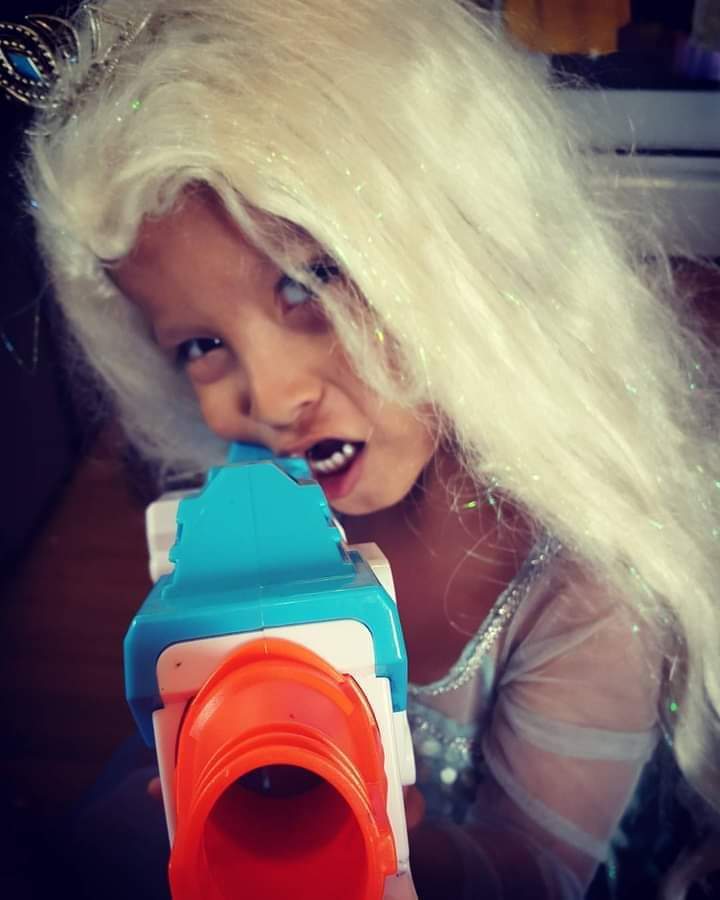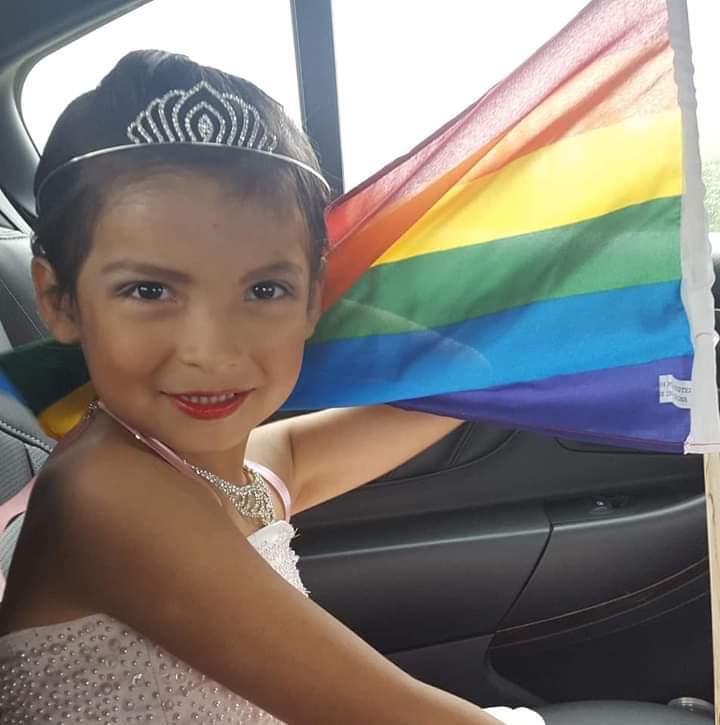From playing with Nerf guns and Thomas the Train toys to Barbie dolls and putting on makeup, it is all about self-discovery, acceptance and pride for three Saskatchewan girls.

Three Indigenous mothers from Beardy’s and Okemasis Cree Nation (BOCN), about 90 kilometres north of Saskatoon, have children who were assigned male at birth, but are two-spirit.
Two-spirit is a term used in the Indigenous community that refers to a person who identifies as having both a masculine and feminine spirit.
FULL COVERAGE: Inside Pride
On the First Nation of more than 3,000 band members, Rozanna Seeseequasis, Jade Penner-Gardipy and Cheyenne Gamble have a connection of raising daughters who self-identify as two-spirited.
When Reece Okemaysim was three years old, she started becoming interested in purses and high heels. Five years later, Seeseequasis’s daughter Reece, now 11, began to self-identify as a girl.
“I was OK with it, I didn’t think too much of it,” said Seeseequasis. “I was more or less worried of what other people would say.… I thought it was normal.”
When seven-year-old Hudson Penner was three years old, she told her parents that in her heart, she felt like she was a girl.
“We just started supporting her and we started educating ourselves on how to support her,” said Penner-Gardipy. “We just felt proud of her because she knew who she was. She told us how she felt so we wanted to support her.”
Ten-year-old Alexandra started wearing dish towels around her waist and carried around purses when she was between the ages of two and three. Gamble says she did not think anything of it at the time.
“We’re kind of thinking like maybe it was a phase and then it just wasn’t,” she said. “It didn’t go away (and) here we are today.”

Get breaking National news
When the three kids decided to come out and self-identify as girls, there were minor challenges for the three families. Seeseequasis said the first challenge came from her grandmother. She questioned Seeseequasis on why she allowed Reece to wear skirts and makeup.
“It was her old mentality,” she said. “I am letting (Reece) be who she wants to be because she’s perfect.”
And Reece agrees with her mom. She says she is happy and comfortable being who she is.
“I was meant to be a girl,” said Reece. “My friends accepted it.”
When Gamble realized Alexandra identified as a girl, they kept it to themselves at first. She says they were worried about other people’s reactions.
“It was at a time where we didn’t have Pride parades here in Beardy’s. We didn’t have anything like that whatsoever,” said Gamble. “So, we were still kind of stuck in and just (kept) it private as well, because her dad and I both come from families where it’s just strictly males.… We kind of weren’t sure how to go open about it.”
When the mothers go through bumps along the road, they are comforted to know they can lean on each other and the community for support.
Penner-Gardipy said she and Gamble keep in touch, whether through sewing ribbons skirts or being each other’s guidance through this path.
“We know we can go to one another or lean on each other for support,” said Penner-Gardipy.
The BOCN community organizes a Two-Spirit Pride Festival to demonstrate that everyone in the community is welcome and valued.
“I want our kids to celebrate who they are in a community that cherishes them and loves them unconditionally,” said Kevin Seesequasis, the BOCN community development officer and Two-Spirit Pride organizer, who is distantly related to Reece and her mom.
“Negative behaviours and attitudes have no place here. We honour two-spirit community members and I want people to remember that wahkotowin, sakihtowin – kinship and love – are at the heart of who we are as Indigenous Peoples.”
A passion for powwow dancing
All three girls have something in common when expressing their self-identity: their passion for powwow dancing.
When Reece was as young as three years old, she joined the powwow circle dancing boys’ grass but she was unhappy.
It was at the age of eight that Reece discovered dancing girls’ jingle and fancy dress has helped her transition into her identity.
“Our traditional dance helped her realize who she identifies as (and) what role she feels comfortable in,” said Seeseequasis. “She understands both roles as male and female and acknowledges and respects both of her spirits.”
Hudson, who is a fancy-dress powwow dancer, wanted to dance in this year’s Manitou Ahbee powwow celebration in Winnipeg. The event took place in May with a 2Spirit Honour Dance Special to honour and welcome 2Spirit/Indigenous LGBTQ people into the powwow circle.
“I wanted her to be a part of the community that’s outside of our own hometown community,” said Penner-Gardipy. “I wanted her to experience the two-spirited community that’s outside of Saskatchewan, and for her to understand that she belongs everywhere.”
It was a similar experience for Alexandra. In June 2019, Beardy’s and Okemasis Cree Nation held a one-of-a-kind two-spirit powwow. It was the opportunity Alexandra had waited for. She danced in the girls’ jingle dress category, where she took first place and made headlines, inspiring others to be themselves.
“It just blew up and we realized, ‘What the heck?’ Like, everyone accepts this,” said Gamble.
It was a moment of relief knowing that Alexandra can just be herself around her family and in the community.
“It feels really nice. I can love how I can just tell my parents … and express myself,” said Alexandra. “(My friends) are respectful (and) were supporting me too.”
When it comes to community supports, all three mothers say coming from a supportive community has helped their families but more work is needed.
Some suggestions from the mothers are for communities to offer a 2SLGBTQ support group in schools, talking circles with elders or adult 2SLGBTQ individuals and parental support groups for those who need advice.
“I hope that all First Nations (could) have a Pride day/week/month events to celebrate and include our two-spirited relatives or to be able to create inclusive and safe spaces,” said Penner-Gardipy.
Gamble said the supports for those who identify as two-spirited begin at home.
“Create that safe space in your home for these beautiful and amazing children,” she said. “They first need to know that they are safe to be who they are, they need to have that love and support from their immediate family before anything.”
Like Alexandra and Hudson, Reece’s discovery of her self-identity could not have been possible without the continuous support and unconditional love from her mother.
“If you see your child having an interest in … sports more than Barbies and Barbies more than sports, then let them be,” she said. “We need happy children and letting them be who they want to be would be the best thing for their mentality, especially their behaviour effects.”
Penner-Gardipy volunteers with the Prince Albert Pride Committee to help educate herself and others. Her advice for other parents who have children who identify differently than what they were assigned at birth is to support their child’s choice.
In the month of June, Global News is exploring deeper issues related to the 2SLGBTQQIA+ community in our series, Inside Pride, which looks at the importance of the acronym and the labels it represents.















Comments